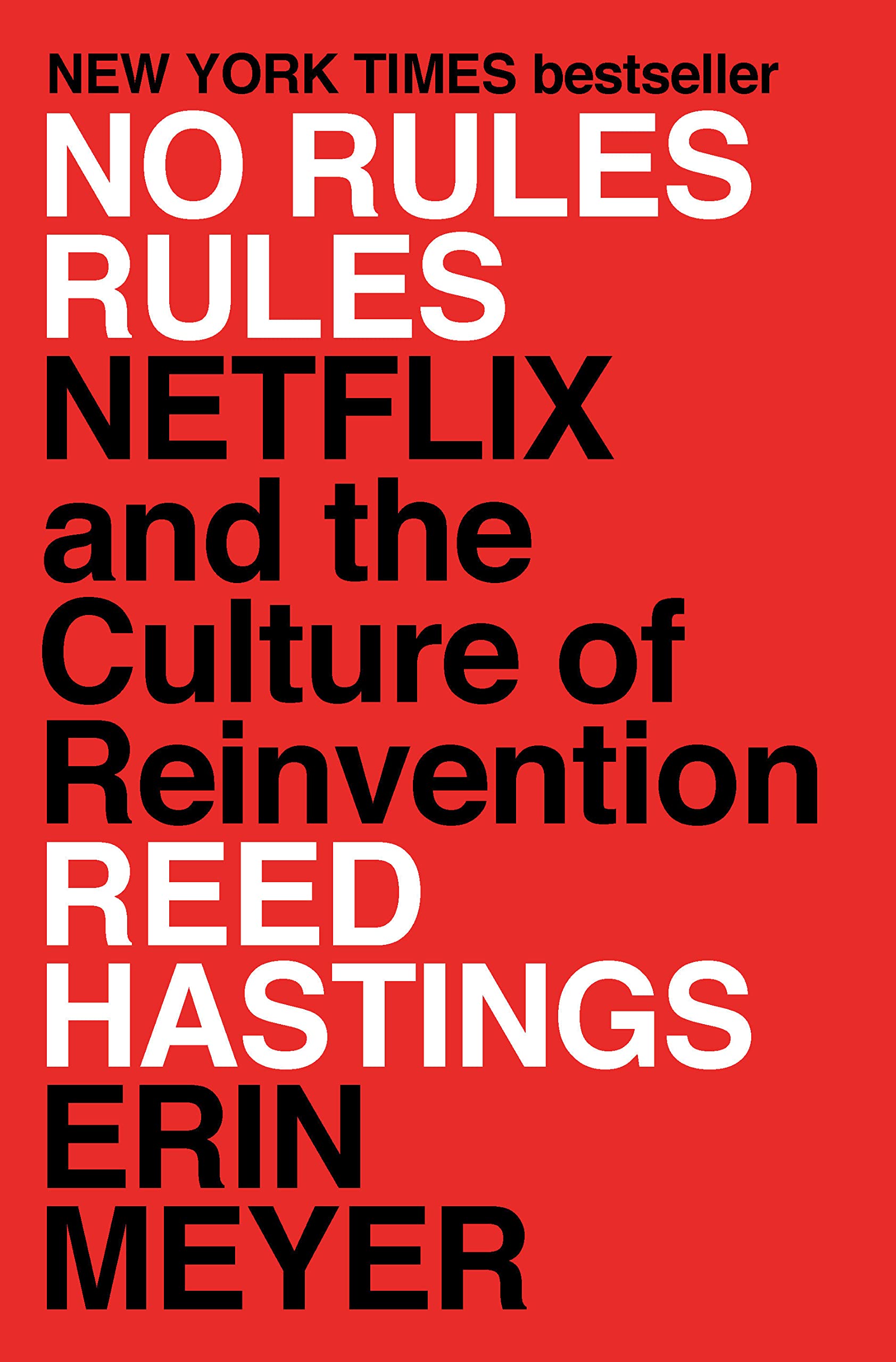
Notes on
No Rules Rules: Netflix and the Culture of Reinvention
by Reed Hastings
• 3 min read
Freedom and Responsibility
These are the keywords for the Netflix culture.
You want Freedom & Responsibility.
You can make having no rules work.
Rules are mostly to ensure a higher lower bound, not to restrict the upper bound (which they inevitably do) of employee performance.
For this reason, given two things, you can start removing rules and giving employees more freedom.
(I believe I’ve read that employees with more autonomy are generally happier.)
The two prerequisites:
- Talent density
- increased candor
This is all a gradual shift. You don’t get there overnight. There are move steps than just the above. And you don’t remove all rules immediately.
Make sure your crew is filled with talented people only.
A study by Will Felps found that teams with just one bad (slacker, jerk, pessimist) employee underperformed by 30-40%.
First, get talent. Get rid of slackers. Fire jackasses, no matter talent. To get more talent in your organization, you pay top of market. One 10x is better than five 1x employees.
It’s better, for creative work, to find one rock star and pay top of market than average employees and pay average.
They 10-100x average performance.
Don’t use bonuses. They don’t work. People don’t work harder than they otherwise would. Just pay more.
Encourage constructive candor. Presents 4As framework for giving and receiving feedback.
The 4As
- Giving feedback
- Aim to assist
- Actionable
- Receiving feedback
- Appreciate
- Accept or discard
And then, remove vacation policy.
Lead with context. It’s OK to take vacation, but don’t be a dick about it… e.g., taking off in crunch periods, leaving your department to pick up extra slack in hard times.
And then, remove travel/bill policy, and just introduce one liner like “act in COMPANY’s best interest”.
Might need checkups, I.e. Periodically review what people charge to the company. Some leaders prefer to go with the “if you’re found abusing, you’re out”, while others go for more regular checkups and try to guide people.
People need context. Lead with context. Let them know what the company’s best interests are, and give them a responsibility under freedom to act in accordance with them.
The Pratfall Effect: If you are perceived as competent, you are only more well liked by admitting mistakes.
However, if you aren’t perceived as very competent, you are liked less by admitting mistakes.
Be transparent in all matters, except personal private matters.
Consider symbolic messages sent (closed vs. open office, etc)
Ownership of (even big) decisions should be dispersed among the workforce. Encourage individual ownership.
Help your workforce make good bets. And bets are allowed to fail.
To figure out whether to keep which employees, ask yourself whom you’d fight the hardest for if they were leaving for a similar job at another company.
Take personal ownership. If an employee does something dumb, ask yourself what you did to encourage that behavior. Did you not articulate yourself clearly? Did you explain X context?
Liked these notes? Join the newsletter.
Get notified whenever I post new notes.